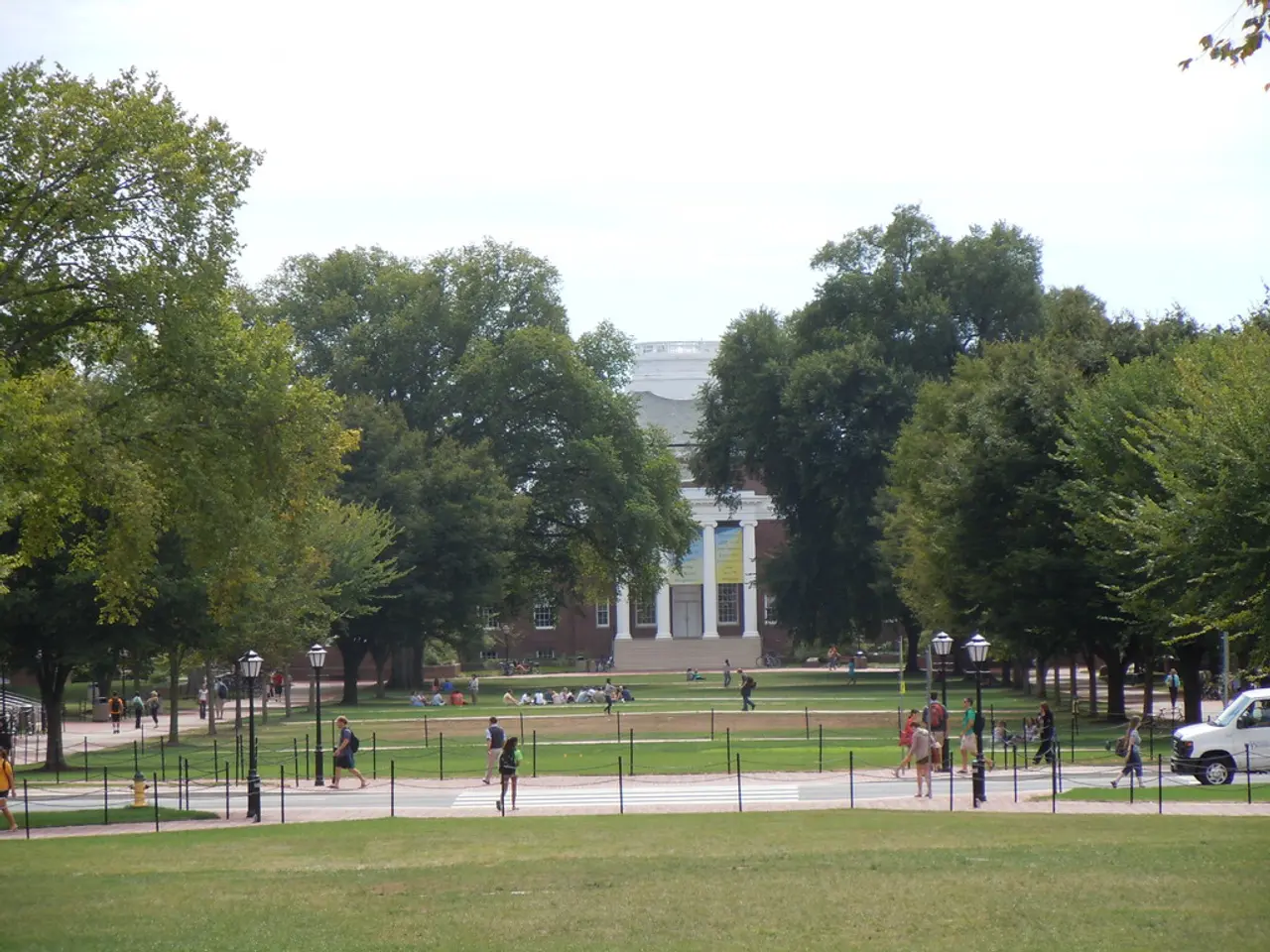Yakut City National Gymnasium assesses the quality of online education
In the current educational landscape, the A.G. and N.K. Chiryakov Gymnasium is making strides in distance learning, as evidenced by a recent survey involving 575 parents and students. The high professionalism of teachers is evident in their ability to provide engaging and effective distance learning experiences, with Tanya's chemistry lessons and Raisa Konstantinovna Ptitsyna's math lessons being particularly popular among students.
Tanya's unique approach to chemistry includes individual lessons, video experiments, practice tests, and analysis of results, keeping students deeply engaged. Raisa Konstantinovna's math lessons involve independent problem-solving followed by question-asking, which students find engaging. Evdokia Nikolaevna Nazарova, on the other hand, teaches literature and Russian language on the Zoom platform, managing to cover a large amount of necessary information in a 30-minute lesson.
However, teachers are not immune to concerns about students potentially tiring out over months of isolation. One of the main problems with the Zoom platform is its 40-minute conference limit, leading some educators to consider Discord as a more convenient alternative for distance learning.
The survey results reveal that 128 respondents rated the quality of the distance learning process in the gymnasium as a "5", 265 as a "4", 142 as a "3", and 40 as lower. The positive aspects of distance learning include keeping students engaged, helping them acquire new technologies, and enabling parents to monitor the learning process.
The key factors impacting the quality of distance learning involve several cognitive, emotional, and contextual dimensions. Learner anxiety, learner self-efficacy, learning environment size and autonomy, and physical activity and schedule optimization are critical in maintaining student engagement and learning outcomes.
To combat learner anxiety, educators can quickly assess anxiety levels by observing participation patterns, using self-report scales, or informal check-ins. Strategies like "Think-Pair-Share" or creating an error-tolerant environment help reduce anxiety. Building learner self-efficacy can include success journals, scaffolded tasks starting with easier wins, peer modeling, and growth-focused feedback.
In the gymnasium context, physical activity and schedule optimization are particularly relevant. Increasing session frequency and moderate to high-intensity activities improve fitness outcomes, indirectly affecting cognitive engagement.
The 'Your Personal Psychologist' page on Instagram, created by the gymnasium psychologist, Nikita Anna Viktorovna, has become popular among gymnasium students. Suggestions for addressing challenges include opening summer courses for those who need to catch up and for those who want to learn, including those preparing for OGE and EGE.
Valentina Nikolaevna Kisyakhova uses a graphic tablet to explain chemistry topics, making the lessons more comfortable and precise. Venera Illarionovna Illarionova's distance lessons on text analysis can be viewed on the NVC channel and YouTube.
Teacher qualifications, mastery of distance communication technologies, teacher accessibility, and ease of communication are identified as ensuring the quality of distance learning. Over 190 children have visited Tanya's page and subscribed to her posts, enjoying online tests and consultations.
In conclusion, the A.G. and N.K. Chiryakov Gymnasium is adapting to the challenges of distance learning by focusing on key psychological and environmental factors and employing quick, low-burden assessments. This approach is ensuring that students continue to learn effectively and efficiently, while also addressing the unique needs and concerns of both students and teachers.
- The unique approaches of Tanya and Raisa Konstantinovna, who teach chemistry and math respectively, contribute significantly to the engaging online education provided by the A.G. and N.K. Chiryakov Gymnasium during education-and-self-development, as they integrate individual lessons, video experiments, practice tests, and analysis of results, independent problem-solving followed by question-asking, and ultimately, maintain student engagement in the learning process.
- In the context of the A.G. and N.K. Chiryakov Gymnasium, the gymnasium psychologist, Nikita Anna Viktorovna, addresses learner anxiety through strategies such as "Think-Pair-Share" and success journals, contributing to a more effective education-and-self-development process for gymnasium students in their online-education journey while helping them acquire new technologies and enabling parents to monitor their learning progress.




